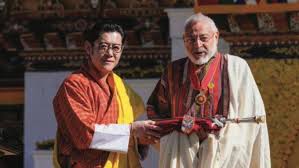Tulsi Gabbard’s New Role in National Intelligence: A Major Shift
Tulsi Gabbard, the former U.S. Congresswoman from Hawaii, has recently made headlines with her new role in the U.S. national intelligence sector. Known for her outspoken views and progressive stance, Gabbard is now positioning herself in a crucial position within the intelligence community. This transition marks a significant shift in her political journey, from being a member of Congress to a key figure in national security affairs.
Gabbard’s New Appointment
The former Congresswoman has been appointed to a strategic role within the intelligence community, leveraging her experience in national security matters. During her time in the U.S. Congress, Gabbard was known for her strong stance on military issues, foreign policy, and veterans’ affairs. Her new role aligns with her expertise in defense and intelligence, signaling a pivotal moment in her career as she moves into the realm of national intelligence.
The Shift from Politics to Intelligence
Tulsi Gabbard’s transition from a political figure to an intelligence officer is noteworthy. This move signals a growing recognition of her deep knowledge of global security issues, including her foreign policy experience as a U.S. representative. Her new position is expected to bring a fresh perspective to the intelligence community, especially in tackling modern threats that require both strategic insight and political understanding. Her background in international relations and military affairs positions her well to handle the complex issues that arise in the realm of national security.

Why This News is Important
Significance of Gabbard’s Appointment
Tulsi Gabbard’s transition to a high-ranking position in national intelligence is not just a personal achievement; it has broad implications for U.S. security and foreign policy. Her unique background as a former congresswoman and her experience in military affairs bring a fresh approach to intelligence analysis. This move highlights the increasing convergence of political expertise and intelligence functions, where individuals with legislative and diplomatic experience are now shaping national security strategies.
Impact on U.S. Intelligence Community
Gabbard’s appointment may also be seen as a recognition of the need for diverse perspectives in intelligence, especially as the nature of global threats evolves. Her in-depth knowledge of international relations, particularly in the Indo-Pacific region, where U.S. interests are paramount, could prove invaluable. Her experience in Congress gives her a robust understanding of the legislative processes that drive intelligence operations. This unique perspective is vital for enhancing collaboration between intelligence agencies and lawmakers.
Historical Context: Background Information
Tulsi Gabbard’s Political Journey
Tulsi Gabbard’s political career has been one of notable independence and bold stances. Serving in the U.S. House of Representatives from 2013 to 2021, Gabbard gained national recognition for her strong anti-interventionist views, particularly in the Middle East. She was one of the earliest politicians to oppose the U.S. military’s involvement in Syria and was known for advocating a more restrained approach to foreign policy. Her background in military service as a former Army officer further solidified her stance on national security.
Intelligence in U.S. National Security
The intelligence community in the United States plays a vital role in shaping national security and foreign policy. The Central Intelligence Agency (CIA), National Security Agency (NSA), and other agencies provide crucial information for decision-makers in government. The integration of political figures like Gabbard into these roles reflects a strategic evolution, recognizing that intelligence work is not solely about gathering data but also about interpreting geopolitical dynamics effectively.
Key Takeaways from Tulsi Gabbard’s New Role in National Intelligence
| S.No. | Key Takeaway |
|---|---|
| 1 | Tulsi Gabbard’s Transition to Intelligence: Former U.S. Congresswoman Tulsi Gabbard is now appointed to a strategic role within the U.S. national intelligence community. |
| 2 | Expertise in National Security: Gabbard’s background in military service and foreign policy makes her a valuable addition to the intelligence sector. |
| 3 | Diverse Perspectives in Intelligence: Gabbard’s political experience brings a new dimension to the intelligence community, focusing on bridging the gap between intelligence and legislative functions. |
| 4 | Focus on Modern Security Threats: Gabbard’s appointment highlights the evolving nature of global threats and the need for fresh approaches in tackling them. |
| 5 | Implications for U.S. Foreign Policy: With her deep understanding of international relations, Gabbard’s new role could influence U.S. foreign policy, particularly in the Indo-Pacific region. |
Important FAQs for Students from this News
Who is Tulsi Gabbard?
- Tulsi Gabbard is a former U.S. Congresswoman from Hawaii, known for her military background and progressive views on foreign policy. She has recently been appointed to a strategic role within the U.S. national intelligence community.
Why is Tulsi Gabbard’s new appointment significant?
- Gabbard’s appointment to the national intelligence sector is significant because it reflects the growing convergence between political leadership and intelligence functions, leveraging her expertise in national security and foreign policy to address modern global threats.
What role did Tulsi Gabbard serve in before her new intelligence role?
- Prior to her new role, Gabbard served as a U.S. Congresswoman from 2013 to 2021. She was also a military officer in the U.S. Army, which enhanced her understanding of national security and defense matters.
How does Tulsi Gabbard’s experience impact U.S. intelligence?
- Gabbard’s experience in foreign policy, military service, and Congress brings a unique perspective to U.S. intelligence, helping to bridge the gap between legislative processes and intelligence operations while addressing complex global security challenges.
What is the significance of intelligence roles in the U.S. government?
- Intelligence roles are critical in shaping national security policies and foreign relations. Agencies like the CIA and NSA provide vital information that informs U.S. decisions, and individuals with experience in foreign policy and military affairs, like Gabbard, contribute to more strategic and informed decision-making.
Some Important Current Affairs Links














